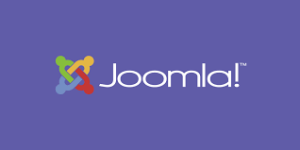Introduction – Best CMS Platforms
A CMS, or Content Management System, is a software platform or application that allows individuals and organizations to create, manage, and publish digital content on the Internet. CMS platforms are designed to simplify the process of website development and content management, making it easier for non-technical users to create and maintain websites, blogs, and online stores.
CMS platforms allow users to publish content to a website or web application without needing to write code or manually upload files. CMS platforms often include tools and features to help optimize content for search engines, improving a website’s visibility in search results.
Some popular CMS platforms include:
1. WordPress.org
WordPress.org is the official website and open-source content management system (CMS) for WordPress. It serves as the primary resource for downloading the WordPress software, accessing documentation, themes, plugins, and community support. The WordPress software is continually updated with bug fixes, security enhancements, and new features. Users are encouraged to keep their installations up to date to ensure stability and security. It’s important to distinguish between WordPress.org (self-hosted WordPress) and WordPress.com. WordPress.com is a hosted blogging platform that offers an easier way to get started with WordPress but has limitations in terms of customization compared to self-hosted WordPress from WordPress.org.
2. HubSpot CMS Hub
HubSpot CMS Hub is a content management system (CMS) developed by HubSpot, a well-known marketing and sales software company. HubSpot CMS Hub is designed to help businesses create, manage, and optimize their websites, landing pages, and online content. It is part of the broader HubSpot suite of marketing, sales, and customer service tools, allowing for seamless integration with other HubSpot products. The platform includes built-in search engine optimization (SEO) tools and recommendations to help users optimize their content for better search engine rankings. HubSpot CMS Hub offers both a “Professional” and an “Enterprise” tier, with the Enterprise tier providing more advanced features and capabilities, including greater scalability and more comprehensive customization options.
3. Joomla – Best CMS Platforms

Joomla is a popular open-source content management system (CMS) that allows individuals and organizations to create, manage, and publish websites and web applications. It is known for its flexibility, extensibility, and robust features. Joomla offers version control and workflow management features, making it easier to collaborate on content and track changes. Joomla is designed to create responsive and mobile-friendly websites, ensuring a good user experience on various devices. However, it may have a steeper learning curve for beginners compared to some other CMS platforms like WordPress. The choice between Joomla and other CMS options depends on your specific project needs and your level of technical expertise. Joomla includes features and extensions for search engine optimization, helping users improve their website’s visibility in search engine results.
4. WooCommerce
WooCommerce is a popular e-commerce plugin for WordPress, one of the most widely used content management systems (CMS) for building websites. Developed by Automattic, the same company behind WordPress.com, WooCommerce is designed to add e-commerce functionality to WordPress-powered websites. It has become a widely adopted solution for individuals and businesses looking to create and manage online stores. It supports a variety of payment gateways, including PayPal, Stripe, Square, and many more. You can choose the payment methods that suit your business and customers. Its integration with WordPress makes it a popular choice for users who are already familiar with the WordPress ecosystem and want to add e-commerce functionality to their websites.
5. Drupal
Drupal is a robust and highly flexible open-source content management system (CMS) that is used to build and manage a wide range of websites and web applications. It is known for its scalability, security features, and extensibility. Drupal is capable of handling large and high-traffic websites and web applications. It can scale to accommodate growing needs, making it a suitable choice for enterprises and organizations with evolving requirements. However, it is an excellent choice for organizations and developers seeking a powerful and customizable platform for building unique websites and web applications. The choice between Drupal and other CMS options depends on the specific project requirements and technical expertise. Drupal offers robust API support, making it suitable for integrating with other systems, applications, and services.
6. Wix
Wix is a cloud-based website builder and content management system (CMS) that allows users to create and manage websites with ease, without requiring advanced technical skills or coding knowledge. It is known for its user-friendly interface and a wide range of features that cater to individuals, small businesses, and organizations. Wix provides e-commerce capabilities, allowing users to create online stores to sell products or services. It includes features like product catalogs, shopping carts, payment processing, and inventory management. Its user-friendly approach and extensive feature set make it a viable option for various types of websites, from personal blogs to portfolio sites and small e-commerce stores. However, for large-scale or highly customized projects, some users may find more flexibility and control with other CMS options like WordPress or Drupal.
7. BigCommerce

BigCommerce is a popular e-commerce platform that enables businesses to create and manage online stores and sell products or services over the Internet. It is known for its robust features, scalability, and flexibility, making it suitable for businesses of all sizes, from small startups to large enterprises. All BigCommerce themes are mobile-responsive, ensuring that online stores display and function well on various devices, including smartphones and tablets. The platform includes shipping and fulfillment tools that enable users to set up shipping rates, configure shipping carriers, and manage order fulfillment efficiently. The platform offers built-in marketing and analytics tools, including email marketing, promotional campaigns, and reporting features to track store performance and customer behavior.
8. Shopify – Best CMS Platforms
Shopify is a popular and widely used e-commerce platform that enables businesses to create, manage, and operate online stores. It is known for its user-friendly interface, scalability, and comprehensive set of e-commerce features. Shopify is designed to make it easy for individuals and businesses to sell products and services online, whether they are just starting out or are well-established retailers. Shopify provides a user-friendly and intuitive interface that makes it easy for users to set up their online stores, add products, customize designs, and manage orders without requiring extensive technical knowledge. The platform offers inventory tracking and management features, helping users keep track of stock levels, issue low-stock alerts, and manage multiple inventory locations.
9. Ghost

Ghost is an open-source content management system (CMS) that is primarily focused on creating and managing blogs and publications. It is known for its simplicity, speed, and its dedication to providing a platform optimized for content creators, bloggers, and publishers. Ghost provides features for creating membership-based and subscription-based publications. This allows bloggers and content creators to monetize their content by offering premium content to subscribers. The platform provides basic analytics and reporting features to help users track the performance of their content and monitor reader engagement. Its simplicity and speed make it particularly appealing to writers and publishers who want a streamlined platform for creating and sharing their content.
10. Magento
Magento is a widely used open-source e-commerce platform that empowers businesses to create and manage online stores, sell products or services, and provide a rich shopping experience for customers. It is known for its robust features, scalability, and flexibility, making it suitable for a wide range of e-commerce businesses. Magento is known for its flexibility and customizability. It offers a modular architecture that allows developers to create custom themes, extensions, and integrations to tailor the platform to specific business needs. The Magento Marketplace offers a wide range of extensions and plugins, allowing users to add extra features and functionality to their online stores. The choice between Magento and other e-commerce solutions depends on your specific business needs and technical capabilities.
Create Your Own Website
“Solicitor is a versatile and sophisticated WordPress theme designed for a wide range of business accounting purposes, including financial organizations, accounting firms, legal practices, investment companies, consulting services, corporate entities, and more. With the integration of Elementor, a powerful live page builder, Solicitor offers advanced design possibilities and features that elevate the WordPress experience to new heights. Additionally, it includes Mega Menus, enabling you to incorporate multi-column drop-down menus enriched with multimedia elements for an enhanced user navigation experience on your website.”
Conclusion – Best CMS Platforms
In conclusion, selecting the best content management system (CMS) platform depends on your specific needs and objectives. Each CMS platform has its strengths, so the best choice depends on factors like your website’s purpose, your technical expertise, scalability needs, and customization requirements. Consider your specific goals and resources to select the CMS that aligns best with your project. The choice of a CMS platform depends on your specific needs, technical expertise, and the type of website or web application you want to create and manage. Each CMS has its own strengths and weaknesses, so it’s important to evaluate them based on your project requirements.
Interesting Reads:
10 Best Free Website Hosting Providers for Web Creations
10 Best Online Survey Tools for Conducting Surveys and Polls
5 Best Digital Comic Creation Software for Comics and Anime Creators


